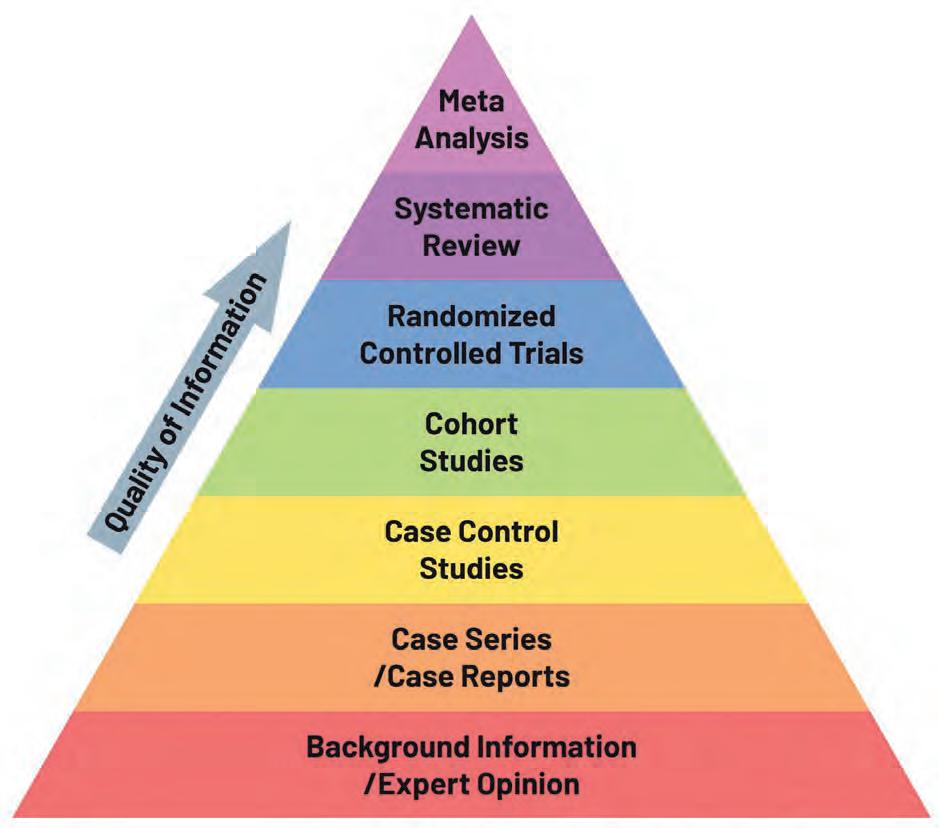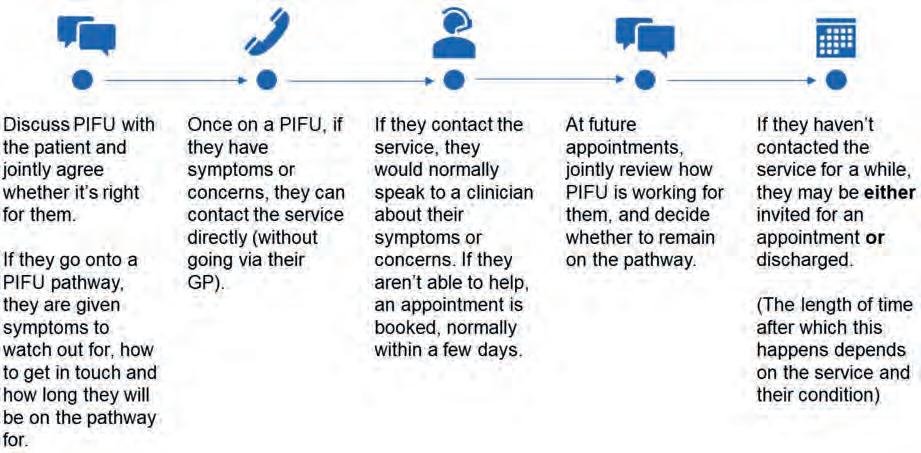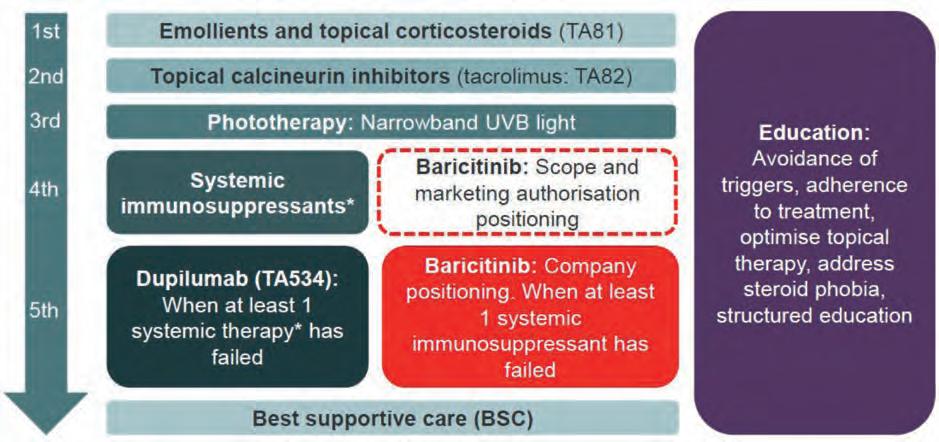Clinical PRACTICE
What is the evidence base to support the nurse specialist when counselling adult patients considering a systemic treatment for atopic eczema? Laura Crosby
This article looks at the rationale and evidence which can help nurse specialists when counselling patients who are considering taking systemic treatments, such as baricitinib and dupilumab for the treatment of atopic eczema. The article looks at how information is provided, the need for patients to understand risks and benefits, and the importance of giving the patient choice and control over their treatment. Crosby L. What is the evidence base to support the nurse specialist when counselling adult patients considering a systemic treatment for atopic eczema? Dermatological Nursing 2021. 20(2):15-19
Atopic eczema Atopic eczema, or atopic dermatitis, is a chronic inflammatory skin condition.1 It is believed that external environmental irritants, such as the weather and soap, alongside the body’s genetically programmed immune response, combine to cause breakdown in the skin barrier and a cycle of increased immune response.2 This can lead to cracked, itchy, dry, and inflamed skin which presents further opportunities for irritants to breach the skin barrier.3 Laura Crosby is a Clinical Nurse Specialist in Medical Dermatology at University Hospital Bristol and Weston NHS Foundation Trust. www.bdng.org.uk
Developments in treatment options
Engaging patients in shared decision making
Dupilumab was licensed for use in the UK in 20184 and baricitinib became the second advanced therapy with approval from NICE in March 2021. 5 Several other advanced therapies are currently in the process of seeking NICE approval for the treatment of adult atopic dermatitis.
Commencing any planned treatment for atopic eczema should be a shared decision whenever possible, as it is believed that involving patients in their care and treatment plans improves patient compliance. 8 This means that patients should be involved in a thorough discussion about their proposed treatment, with a rationale for the treatment recommendation and a risk-benefit analysis.9 It is thought that this shared decision making is particularly important in relation to medication, as the patient will need to accept, understand and administer treatment.10 The nurse specialist can play an important role in this discussion by building trust with patients and ensuring they have a realistic understanding of the risks and benefits of treatment and should, therefore, ensure this is carried out in a timely and effective manner.9 There is a selection of literature8-11 which provides advice on what information
Commencing any planned treatment for atopic eczema should be a shared decision whenever possible The rapid developments in treatment options, in a previously difficult to treat condition, results in additional requirements to counsel and monitor patients prior to and during treatment. The nurse specialist has a unique role supporting the patient on their treatment pathway by tailoring information delivery to meet their needs.7
Dermatological Nursing, 2021, Vol 20, No 2
15












